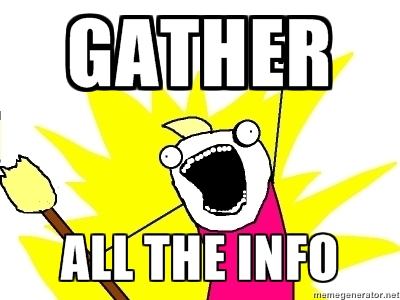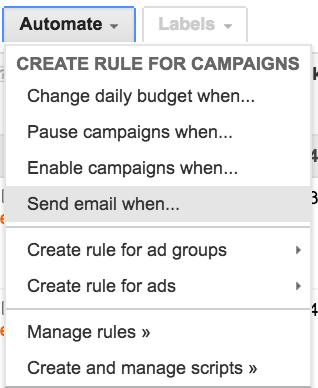6 Organizational Tips For Today’s PPC Specialist

PPC is more than campaigns, ad groups, keywords, and bids. Behind most accounts, there is a person running the operation. A person who can be forgetful, who may have had a bad day, who may have slept less than they should have but nevertheless they love what they do and give it 100%. PPC isn’t about being a super human but being on top of your accounts and tasks, even on those not so hot days.
Today I’m going to give you 6 tips on how to stay organized and be the PPC Hero you were called to be. I may or may not have learned these tips the hard way. Who am I kidding, I’m still learning.
1. Take Notes, Lots Of Them

Your brain can retain a lot of information but as the old saying goes, “better safe than sorry.” From the moment you take on an account or begin working in an account, pay close attention to detail and write everything down. If you never look at your notes again, cool. However, you may save yourself later on from having to ask an embarrassing question because you forgot or didn’t think it was important at the time. Here are a just a few examples of things you may think you can remember, but should take notes:
- Budget: No need for explanation.
- Location: If you are working with an ecommerce client, be sure to take note on where the products are manufactured, shipped from, etc. This information can help you in terms of ad copy and location targeting in the future. You will be a step ahead if you already have this information.
- Legal stuff: To avoid seeing any emails from Google with the words “suspension,” know what you can and cannot say in your ad copy. This information may come up in general conversations but the minor details could be beneficial later on.
- Past strategy: Sometimes conversation regarding what worked and didn’t work in the past will come up. Make sure to take notes. Knowing this information will allow you to go back in time to figure out why something didn’t work and how to better optimize in the future instead of completely considering the strategy a loss.
This list could go on but the key takeaway is to read between the lines and prepare yourself to have answers to questions that may arise in the future.
2. Post-Its Are Colorful For A Reason

If there is anything you absolutely cannot forget about, write it on a post-it and place it around your work area. From basic tasks like pulling a search query report to building an entirely new campaign, make it known that the task needs to be completed. You will see the post-it and have it has a physical reminder rather than one you can hit snooze.
One good example is when you have time sensitive ads. You have them labeled and an automated rule in place to pause/enable them. Having a simple post-it to check in on the status of the ads can save you an awkward conversation as to why some of the ads weren’t paused or never enabled. Automation is great but can encounter errors.
3. Make A To-Do List, Or Two
Make lists. Lots and lots of lists. Categorize those lists and mark items as complete. Don’t delete them. Not only will you have a running record of tasks but you will feel a huge sense of completion when you check something off that list.
You can do this by creating your own excel sheet, physically writing a list in a notebook, or one of the many online to-do list options. Below are just a few great options:
4. The Past Needs To Be Remembered
Whether you use Basecamp or another form of client management, keep track of completed items. This allows you to keep a running record of completed items for a month, quarter, etc. It also allows you to easily report on the performance of said item and exactly when it was implemented.
On the flip side, you can use it to your advantage. If a certain strategy didn’t work, would it be worth trying during a different quarter or season? By having a running record of items, you will have all of the information you need to further test in the future.
5. Excel Has No Mercy, Hit SAVE!

I just thought I would throw this quick reminder in here. That save button is your friend and you never want to create the biggest pivot table of your life and then not hit save.
6. Email Alerts Are Your Friend

Sign-up for email alerts. By taking this action you are ensuring that anytime something needs attention, you are in the know. From the campaign, ad group, or keyword tab, select “Automate > Send email when…”
At this point, you can determine what you want to set an alert for. A few example are as follows:
- Spend reaches a certain amount
- Impression share drops below a certain percentage
- ROAS drops below a certain percentage
- Status changes
- Bounce rate exceeds a certain percentage
Conclusion
We all want to be the organized PPC Hero and not the unorganized PPC Villain. Part of being a hero is to save the day and not let the day wreck you. Stay organized and be prepared for anything that may come your way.



